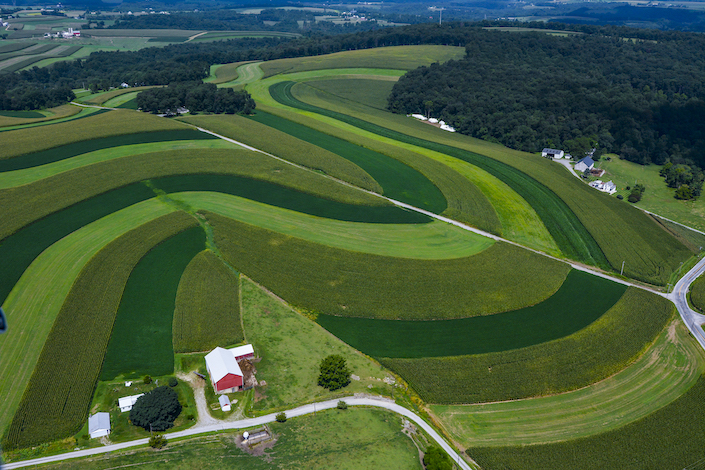Farmers and conservationists are praising a bill introduced in the Pennsylvania Senate that would bring funding to stop agricultural runoff from polluting rivers and streams.
Senate Bill 465, called the Agriculture Conservation Assistance Program, would provide targeted funding for conservation projects on local farms through their county conservation districts.
The Keystone State has more than 25,000 miles of impaired waterways, and farm runoff is a major contributor of sediment and nutrient pollution.
Bill Chain, senior agriculture program manager for the Chesapeake Bay Foundation in Pennsylvania, said farmers want to make sustainability and conservation improvements on their land, but in an economy devastated by COVID-19, many lack the capital they need to make those investments.
“I’ve never met a farmer that didn’t want to leave the farm better than when they found it,” Chain asserted. “That’s their legacy. Increasingly, farmers want conservation to be part of that legacy.”
He added reducing farm runoff is critical to meeting Pennsylvania’s obligations under the Chesapeake Bay Clean Water Blueprint.
Almost one third of Pennsylvania streams don’t meet standards for drinking, fishing or recreation, and Chain noted agricultural pollution affects stream biology all the way up to the top of the food chain.
“They would be our prize trout and bass, and we see reductions in that,” Chain reported. “We take this to the Susquehanna River and take it further down to the Chesapeake Bay it has disastrous results there as well.”
Nutrient and sediment pollution flowing into Chesapeake Bay affects the growth of underwater grasses, impacts habitat for aquatic species and causes harmful algal blooms.
The program would send resources to counties based on criteria including the number of acres in production, livestock density and miles of impaired streams.
Chain pointed out it puts decision-making at the local level.
“County conservation districts are governed by local boards of directors and that board is diverse, usually including a county commissioner and many farmers,” Chain explained.
Senate Bill 465 has been referred to the Senate Agriculture and Rural Affairs Committee.




